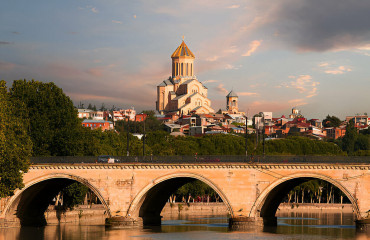Tbilisi is the capital and largest city of Georgia, situated on the banks of the Kura River. This city is unique in its location at the crossroads of Europe and Asia, making it a cultural and historical bridge between two continents with such diverse backgrounds. The history of Tbilisi is rich, dating back to its foundation in the 5th century. The city is known for its architecture, which combines elements of Eastern and Western styles, and its wide cultural diversity, reflecting its complex past. But let's delve into the intriguing specifics.
The Legend of King Vakhtang Gorgasali
The most famous legend about Tbilisi, associated with the founding of the city, tells of King Vakhtang I Gorgasali. According to the legend, events unfolded in the 5th century when King Vakhtang was hunting in the forests near his capital, Mtskheta. During the hunt, his falcon caught a pheasant, and both birds fell into a hot spring. Impressed by the healing properties of these waters, the king decided to found a city on this site so that people could benefit from their therapeutic power.
This story reflects not only the historical but also the cultural significance of Tbilisi - a city named after the word "tbili," which in Georgian translates to "warm," indicating the hot springs that are still one of its main attractions today. The legend also emphasizes the connection between nature and the culture of the region, demonstrating how natural phenomena can shape the course of history and the development of entire civilizations.
The Historical Significance of the City
Tbilisi, the capital of Georgia, has remained an important political and cultural center of the region throughout the centuries. Founded in the 5th century by King Vakhtang Gorgasali, the city quickly became a central hub of trade and politics due to its strategic location between Europe and Asia. This location made Tbilisi the target of numerous conquests by major empires, including the Persians, Arabs, and Mongols.
In the Middle Ages, Tbilisi became a cultural center where literature, art, and science flourished. During this time, temples and monuments were actively constructed in the city, which still remain significant cultural landmarks. A particularly important moment in the city's history was its role during the "Golden Age" of Georgia under the rule of King David the Builder, who made Tbilisi his capital and significantly expanded its borders.
In modern and contemporary times, Tbilisi continued to play a key role as a cultural and educational center. It is home to the country's leading universities, museums, and theaters, attracting tourists from around the world.
The Most Unusual Places in Tbilisi
Tbilisi is abundant with unique and unusual places that make it particularly interesting to visit. Here are some of the most intriguing:
- The Peace Bridge. This futuristic glass and steel bridge, spanning the Kura River, is illuminated at night with colors of the Georgian flag. Crossing the bridge at sunset, one can witness the sun disappearing behind the mountain, where the statue of Mother Georgia stands.
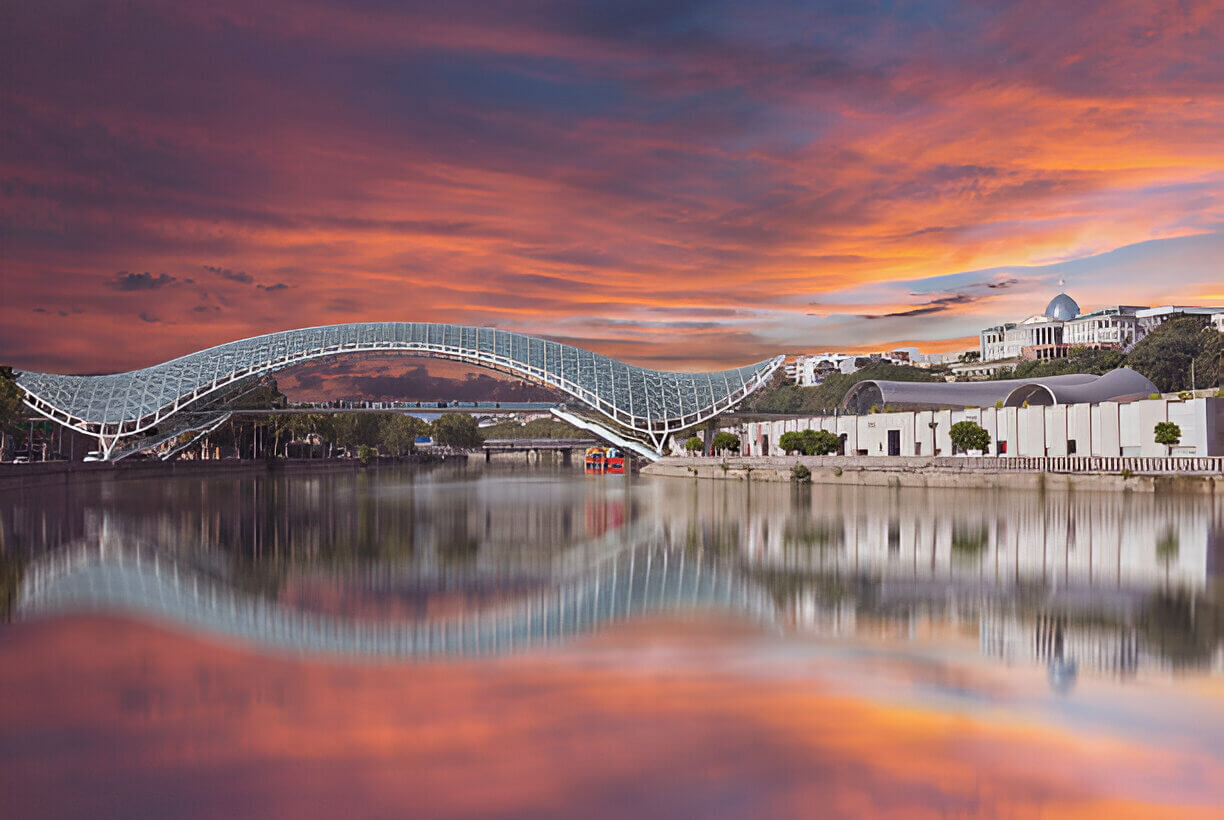
- Jumah Mosque in Old Tbilisi. At the Jumah Mosque in Tbilisi, Sunni and Shia worshippers can pray side by side. It is one of the few places in the world where two branches of Islam coexist so closely.
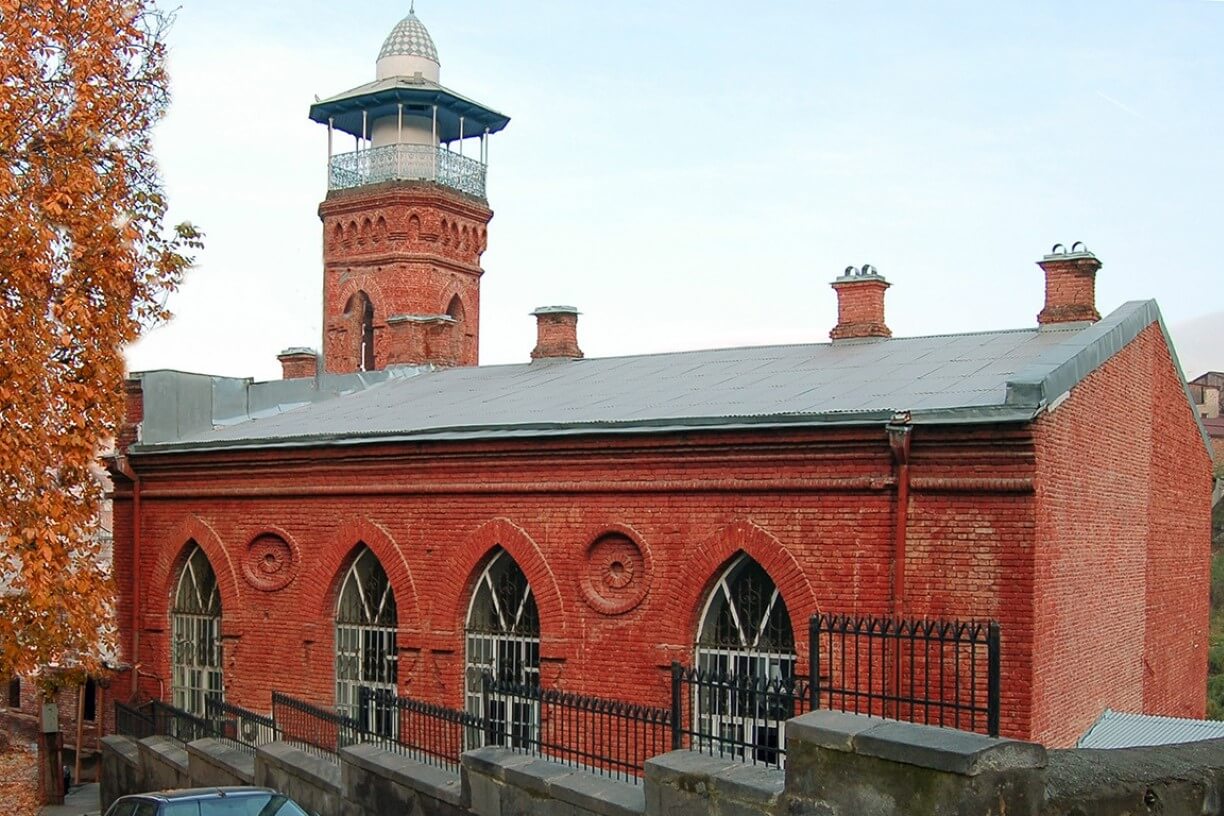
- Zoroastrian Temple. At the heart of the Old Town lies Atashgah - a Zoroastrian fire temple, which is now mostly ruined and no longer functions as a place of worship but remains a testament to ancient faith.
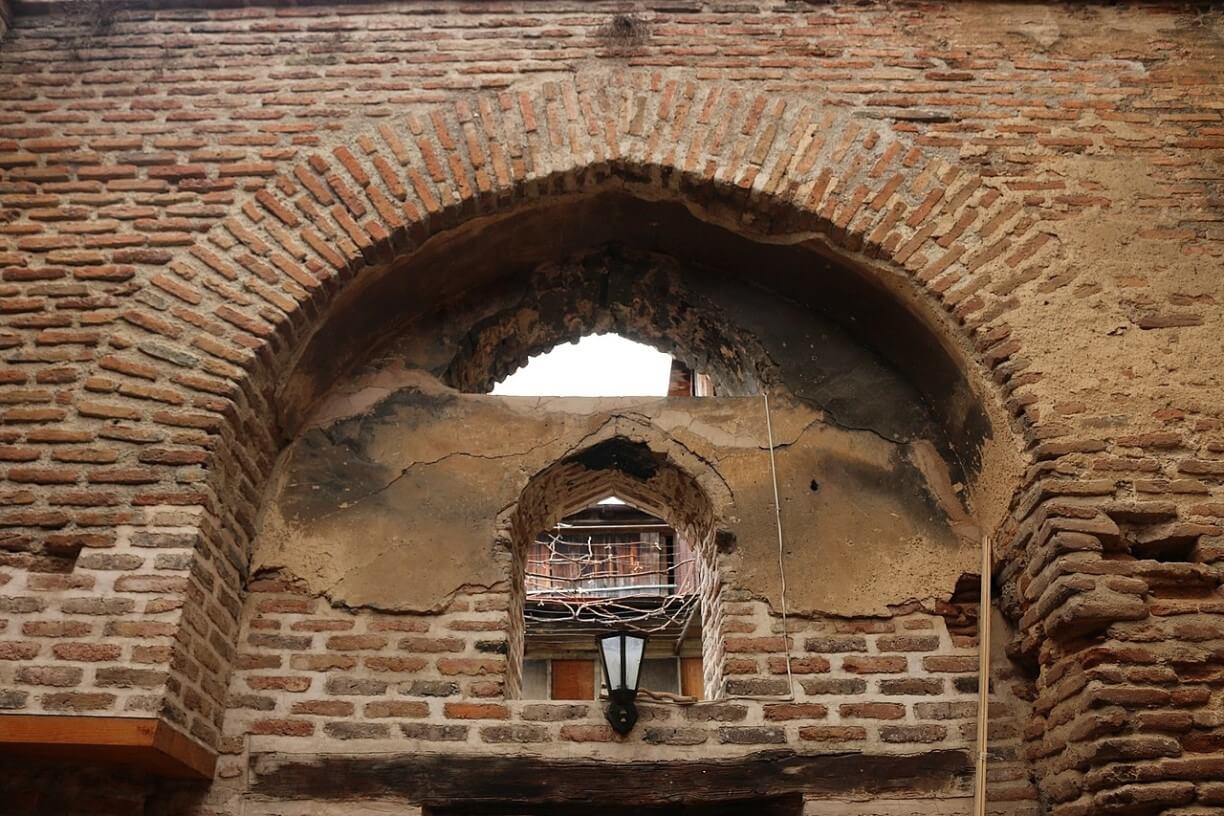
- Mtatsminda Park. At the top of Mtatsminda Mountain, near the Tbilisi TV Tower, is a park with a vintage fair and a giant Ferris wheel, offering magnificent views of the city.
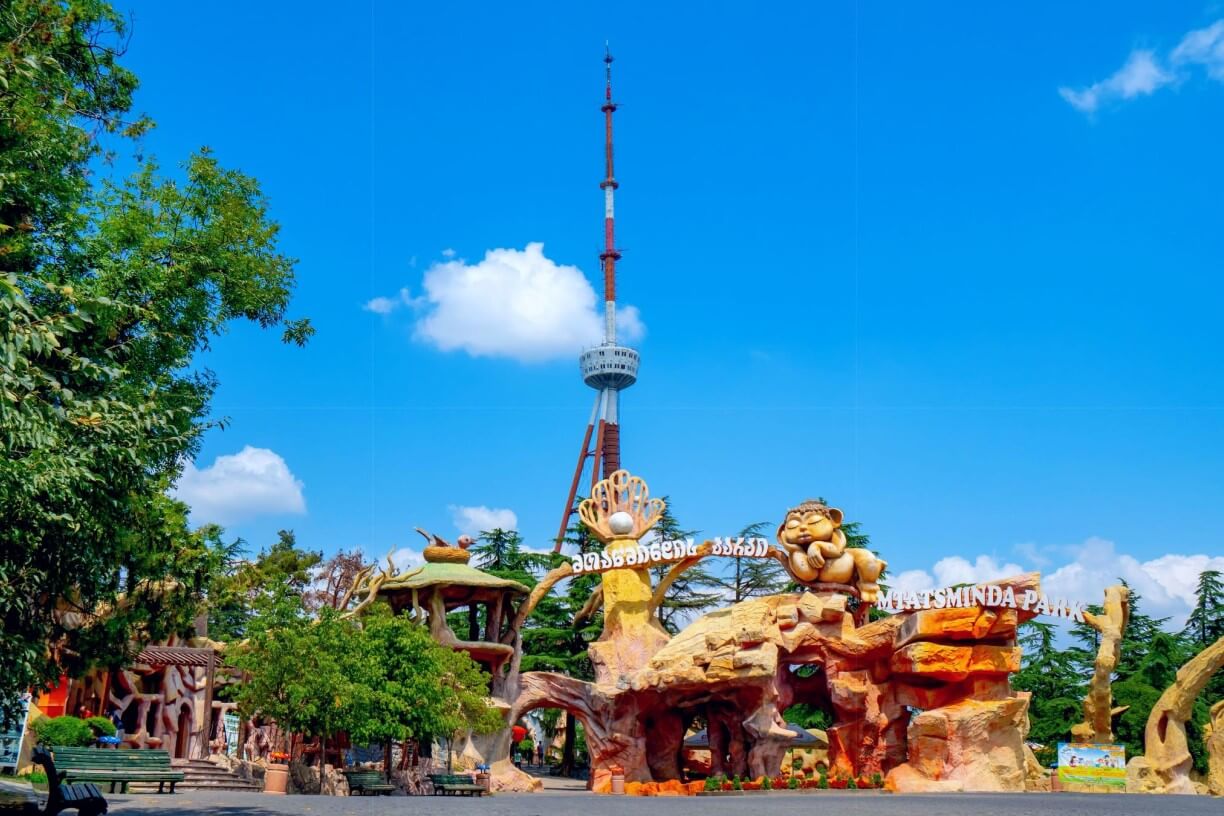
- Tbilisi Sea and Lake Lisi. These two reservoirs are popular spots for swimming and relaxation among locals, especially during the summer months.
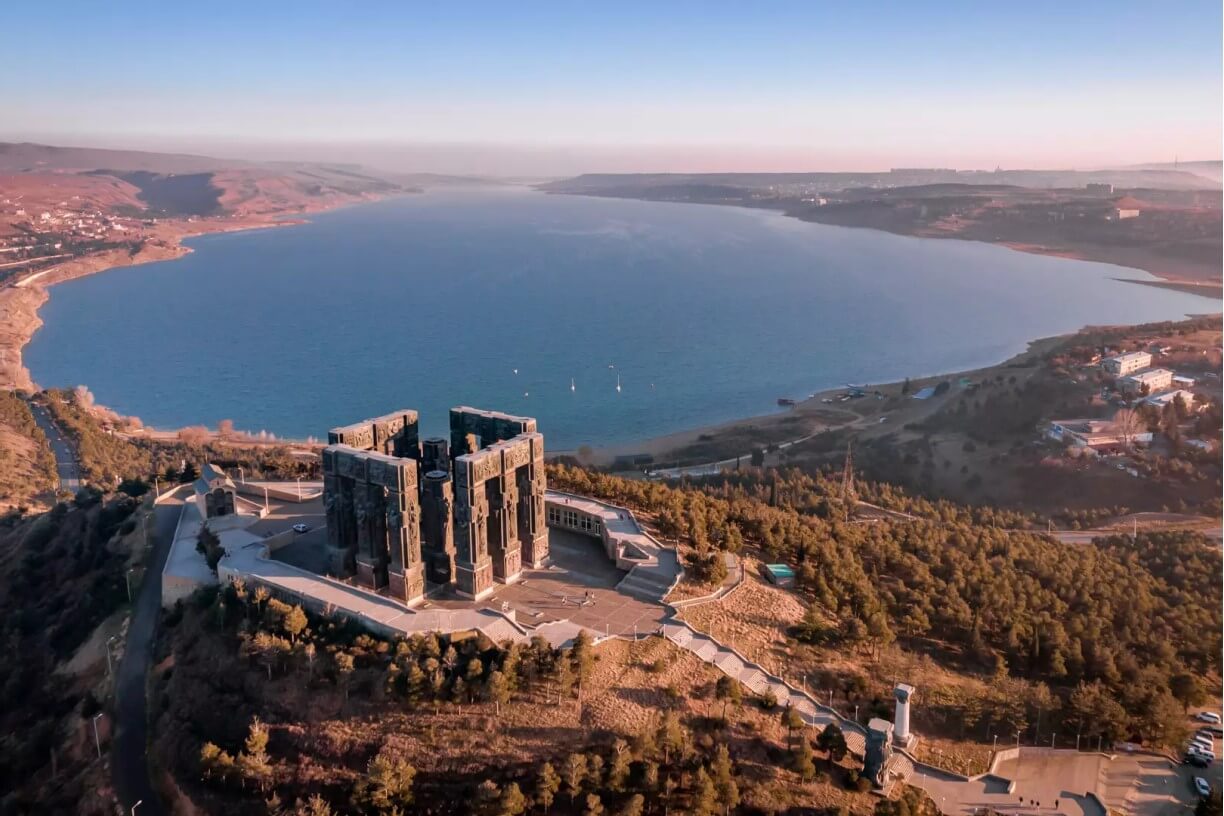
These and many other unusual places make Tbilisi a city beloved by its residents and visitors alike.
Tbilisi Through History
Here are some key milestones in the city's history:
- 5th century. Tbilisi was founded by King Vakhtang Gorgasali. According to legend, he founded the city after discovering hot springs while hunting.
- 6th century. Tbilisi becomes the capital of Iberia after the capital was moved from Mtskheta.
- 7th century. The city falls under Arab rule, who established the Emirate of Tbilisi. Arab rule lasted until the 11th century and had a significant cultural influence.
- 1122. Georgian King David the Builder liberates the city from the Seljuks and moves the capital back to Tbilisi, marking the beginning of the "Golden Age" of Georgia, with King David revered as one of the greatest and most influential rulers in the country's history.
- 13th-14th centuries. The city is under Mongol rule, which had a significant impact, but Georgia maintained a form of autonomy.
- 18th century. After periods of domination by various external powers, Tbilisi and significant parts of Georgia became part of Iran.
- 1801. After centuries of foreign rule, the city is annexed by the Russian Empire, beginning a new era in its development.
- 1918. After a brief period as the capital of the Transcaucasian Democratic Federative Republic, Tbilisi became the capital of the new Democratic Republic of Georgia.
- 1921. The city is captured by the Red Army, and Tbilisi becomes the capital of the Georgian SSR within the Soviet Union.
- April 9, 1991. Following the collapse of the USSR, Georgia gained long-awaited freedom and became an independent state, which it remains to this day.
Each stage in Tbilisi's history has left its mark on the city's architecture and culture, making it a unique place with a rich cultural heritage.
Conclusion
The legend and history of Tbilisi continue to animate the city, attracting tourists and inspiring locals. This city not only impresses with its unique cultural heritage but also stands out on the global cultural map. Interest in Tbilisi is manifested not only in its colorful streets and architecture but also in such unique places as the sulfur baths of Tbilisi. The history of the sulfur baths of Tbilisi spans many centuries and is an integral part of the city's cultural heritage, attracting those who wish to experience their healing properties.
The development of tourism in Tbilisi is also supported by local establishments, such as the Georgian cuisine restaurant in Tbilisi, RadioCafe, where guests can enjoy traditional Georgian dishes in an atmosphere of genuine Georgian hospitality while also having the opportunity to try something more familiar, European. This place becomes a kind of bridge, connecting history and modernity, where everyone can feel the spirit of the old city.


